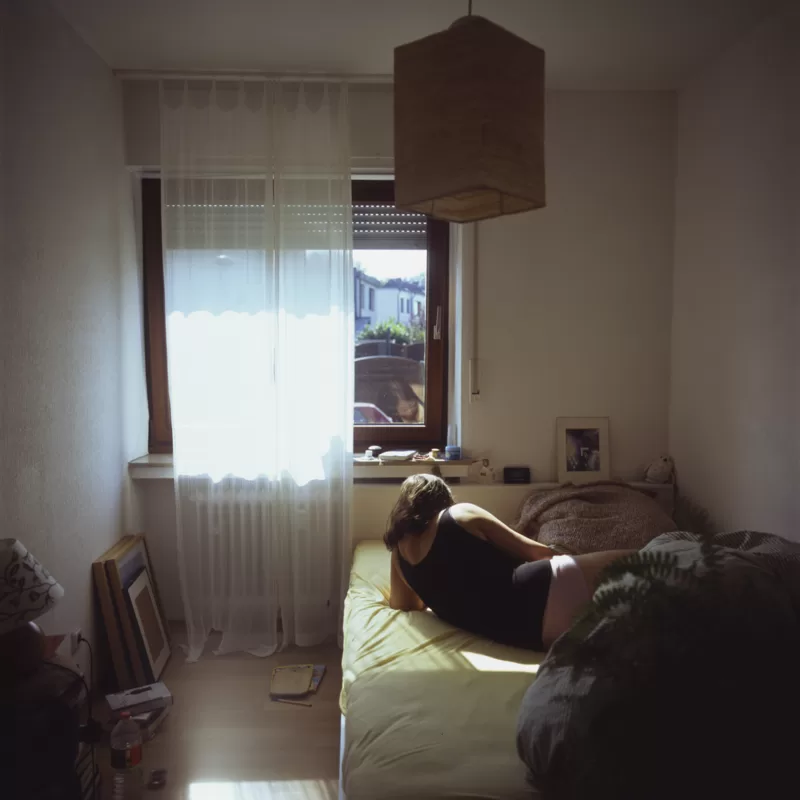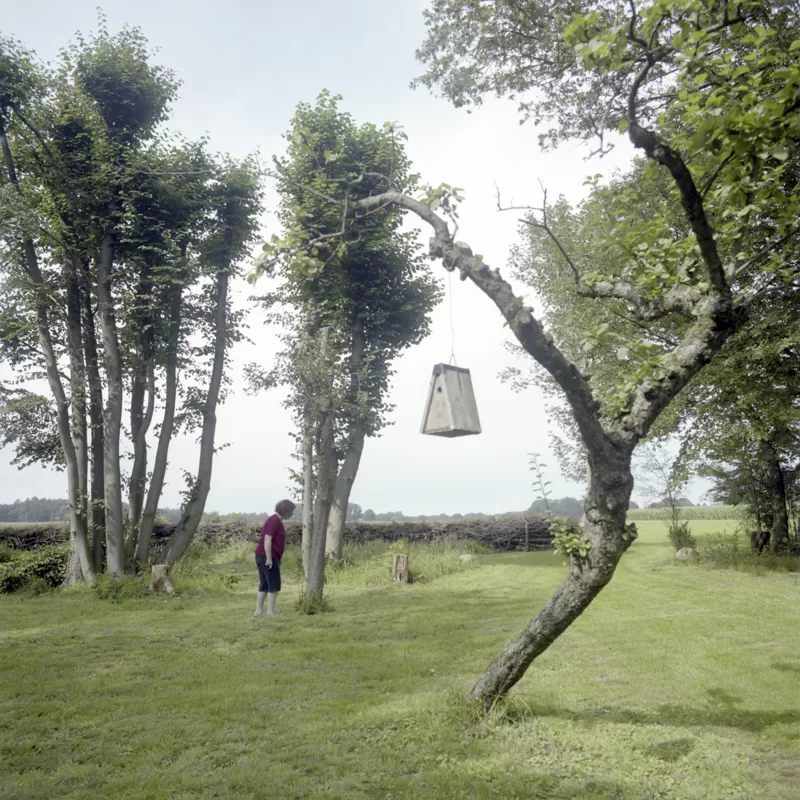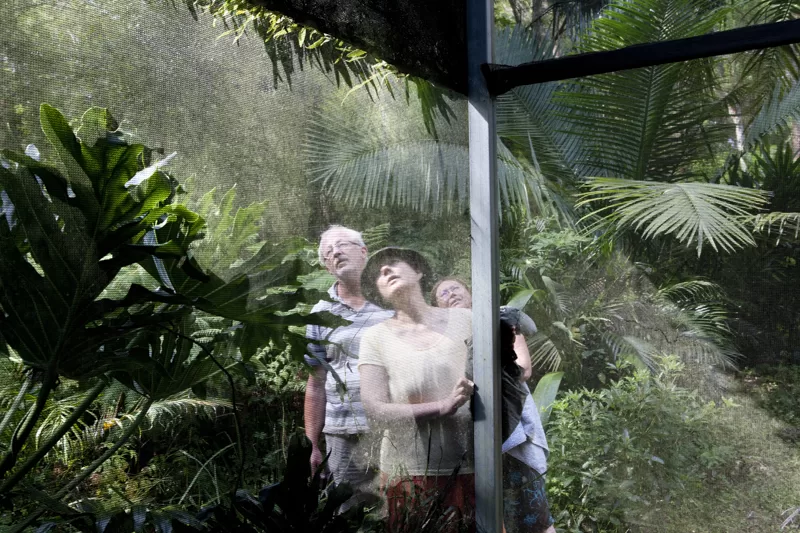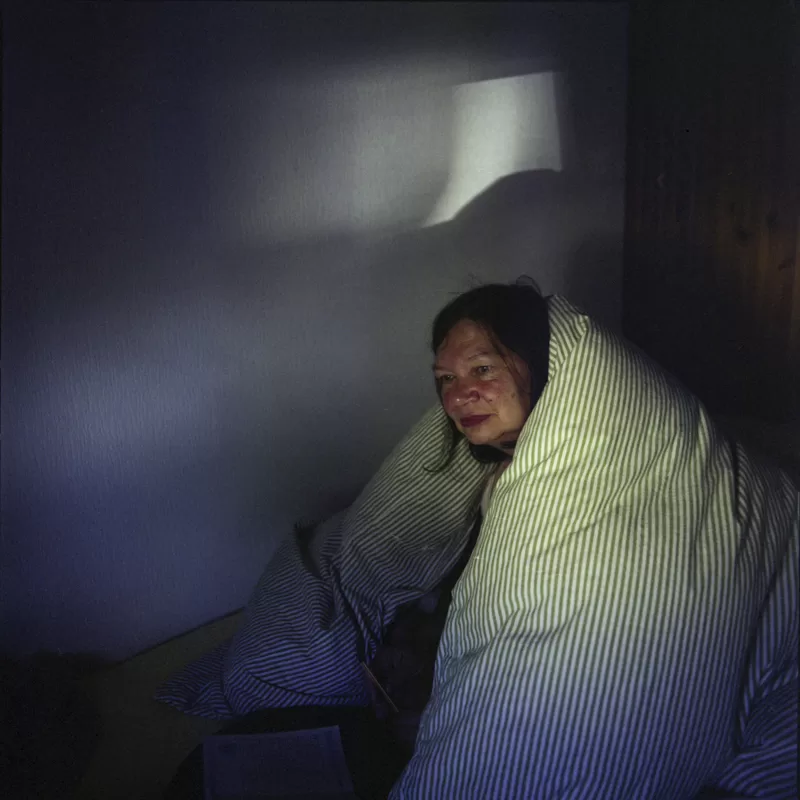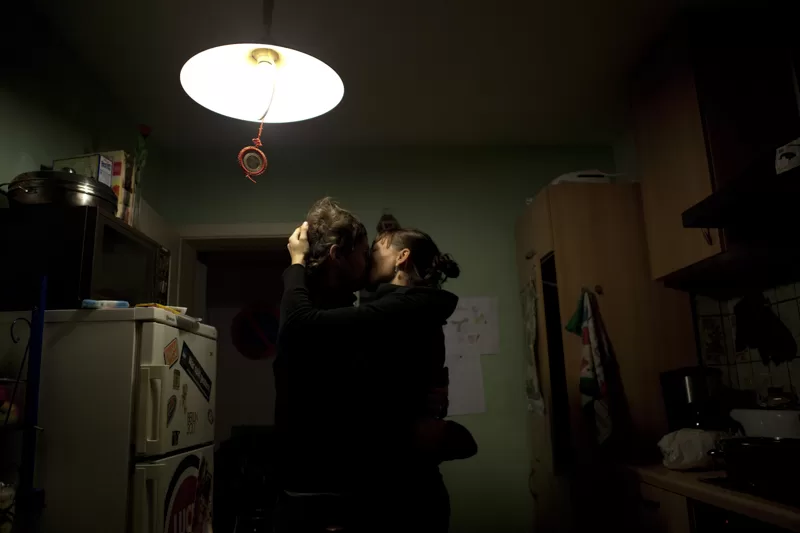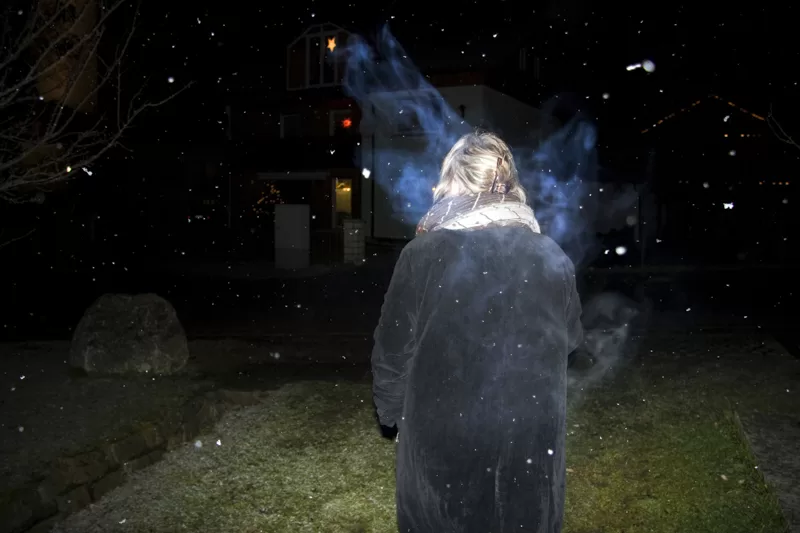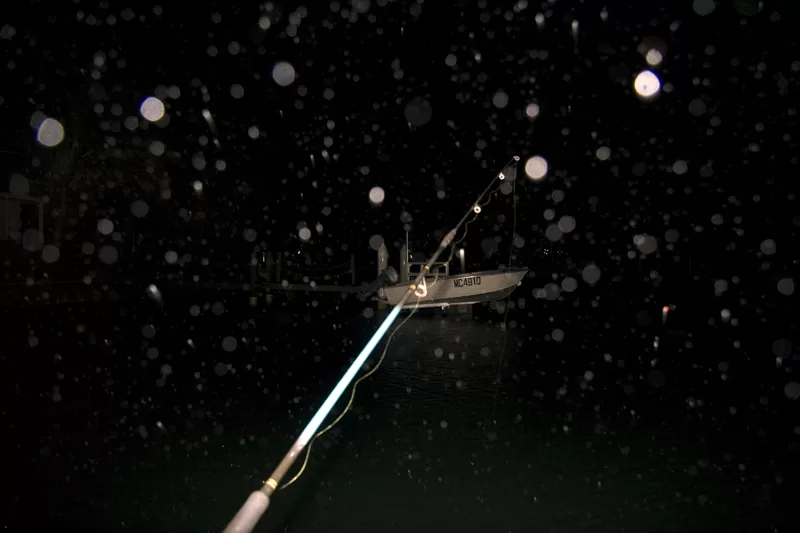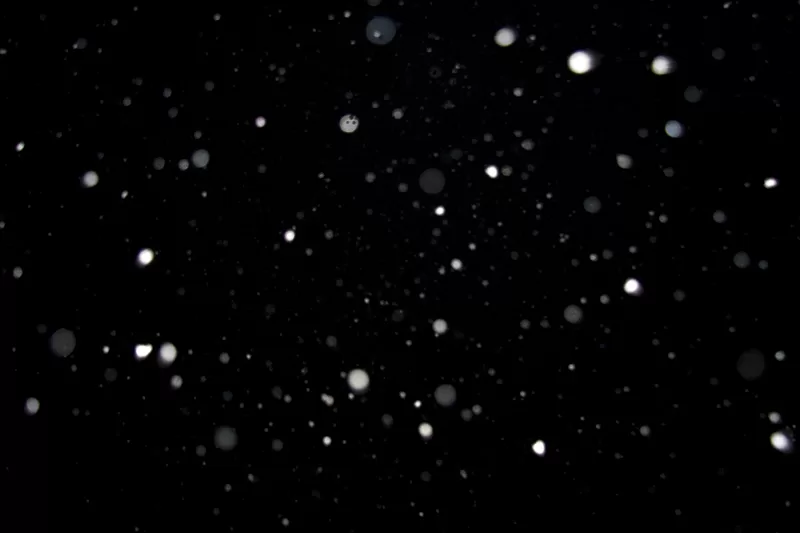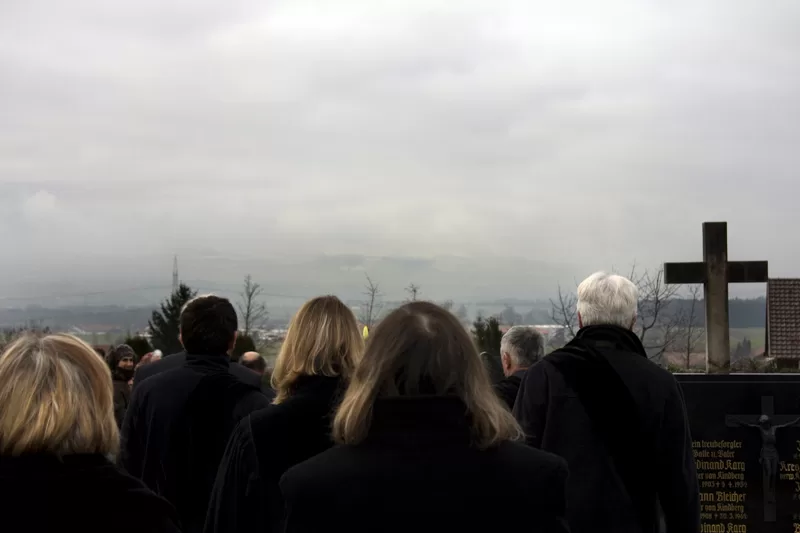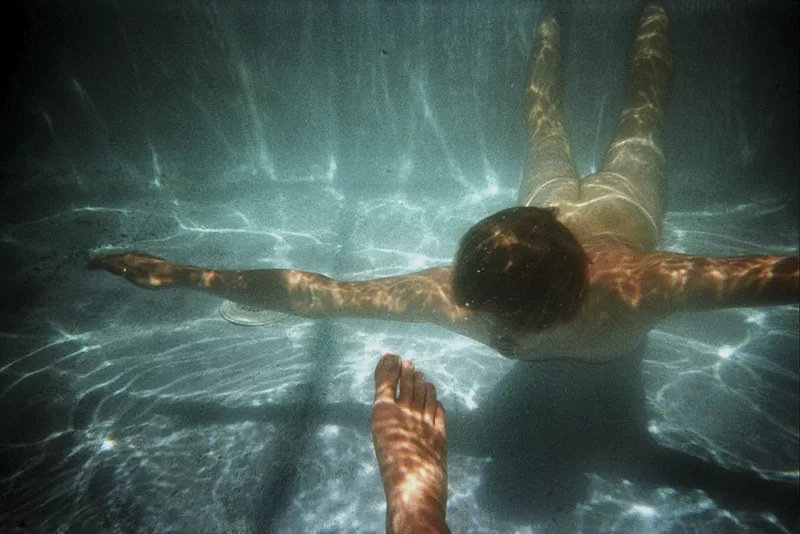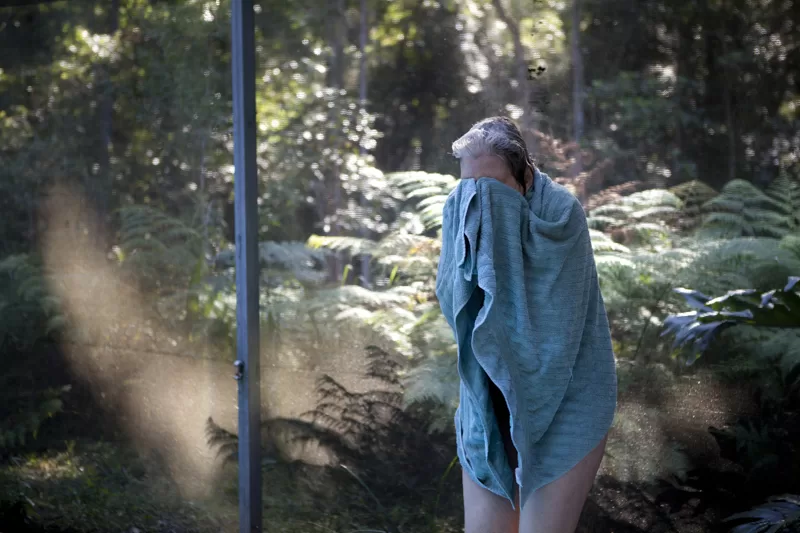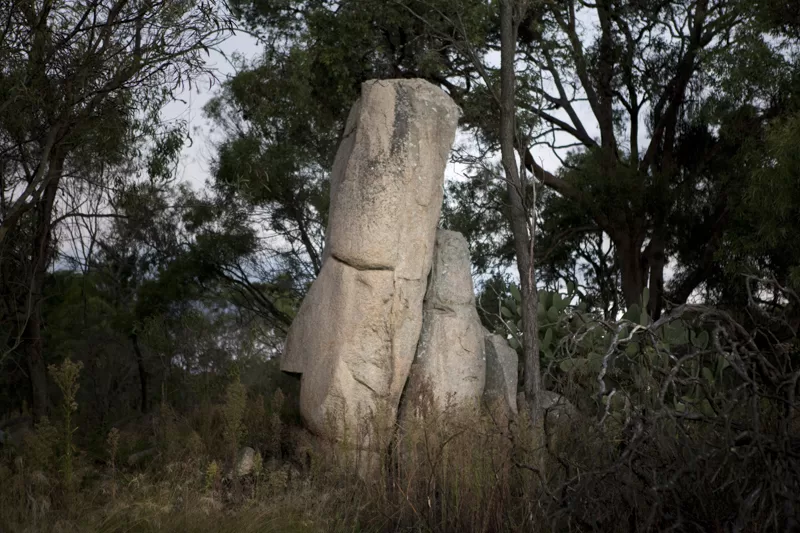Katrin Koenning – Near
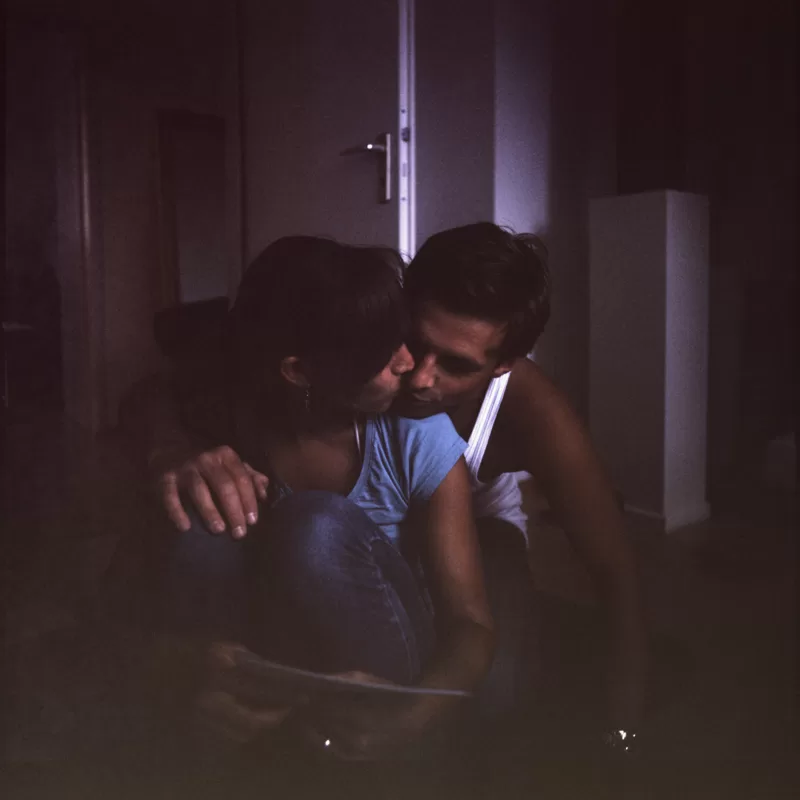
There is no sea here.
Plunged into darkness. Brought back out. Light emerges upon the face of another, who they are is anybody’s guess. Water runs, drips down like sweat from a brow. Bodies lean down to pick up loose items. Drenched in condensation, the body is immersed in the claustrophobic encounter. Drenched in green, grey and the pale pigment of skin, eyes relax and resume calm. Context drifts and narrative sways, there is no linear pattern but haphazard positions take place.
The perishing white light exposes the face of a man, sat up as if they had just woken. Direct lines dart about the space as he creates geometric lines, slowly awaking and his senses stir up once again.
Near. The key words being nearly, nearly there, nearly regular. It is something else now. Ordinary routines have a kind of mist that follows every passing minute. Ordinary scenes transform into uncomfortable spaces, hopeful but appearing glum. The natural line of water runs down the window like a shower curtain. The pale skin obscurely fades from the frame but remains the sole focus point. Something is appearing on the surface here.
Our heads are plunged into the midst of beautiful, clear water. Organic in its colour temperature as a race of two genders take place. There is no linear sense but an unbearable sensation, confined to clinical spaces. Quiet, silent, as splashes make the minimum noise. Rippling as the tide draws near. There is no sea here.
Emerging to the left, swimmers navigate into darkness, removing any sense of awareness. Perfect branches move slightly left and right. The light has faded. There is no light.
There is minimal light.
And as the sun produces its rays, a figure emerges. A figure completely natural in it’s habitat. It has emerged from nowhere, taking a break from lurking in the shadows. Still and silent the face calms, relaxes into a solum, blank stare.
There are no real answers, no real questions, but the overwhelming sense of engulfment really takes hold. We are almost at mercy to its feeling. The feeling consumes our ability to consider the work in a way.
We are lost, but we have no idea how we got to this state. Through Katrin Koenning’s immediate responses we collide into intimate scenarios, leaving us lost with no idea why.
